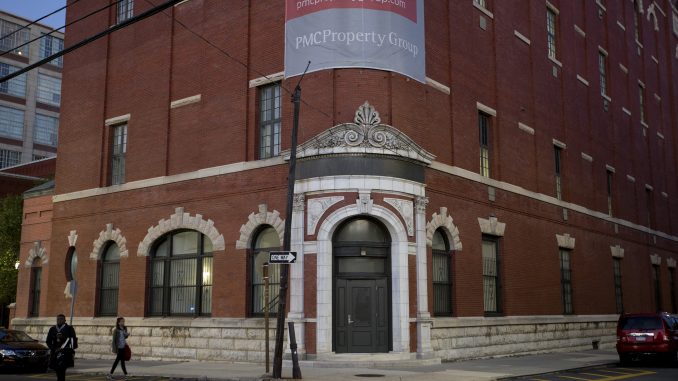
Anjolic Rodriguez is no stranger to the Temple community.
Rodriguez, an alumna with a degree in human resource management, has been property manager at Diamond Green Apartments at 1000 Diamond St. since May 2012.
Her business is one of several apartment complexes and leasing companies that could be impacted by the possible construction of a 35,000-seat football stadium worth an estimated $100 million. Rodriguez said she supports the possibility of a stadium.
“I think we should,” she said. “Our whole place being here is to help the kids and provide housing … what better way to get attraction than a huge stadium?”
The Temple News contacted several other apartment complexes and leasing offices to discuss the possibility of an on-campus stadium.
Some managers didn’t know the on-campus stadium was being discussed by the university—including Ozana McMillan, property manager of Kardon Atlantic Apartments at 1801 N. 10th St. for about a year. McMillan isn’t sure of whether she would prefer a stadium for business.
Rentcampusonline.com, an apartment leasing company located at 1414 W. Oxford St., leases several properties around Main Campus.
Matan Brenner, who said he has been sales manager at rentcampusonline.com for about the past three-and-a-half years, favors an on-campus stadium.
“We’re witnessing here the past few years of development of the whole area,” he said. “A lot of it is due to the development of Temple University simultaneously, so I think it would be another great addition to what’s going on.”
Another company, North Broad Living, owns more than 60 apartments in eight different buildings, according to its website, including some in Elmira Jeffries, formerly a university-affiliated housing complex at 15th and Jefferson streets.
Jenna Staico, a manager of North Broad Living for the past six months, said she was in favor of a stadium but was concerned about its impact on the community.
“We’ve played at The Linc, which has always worked out,” she said. “If we build a stadium right in the heart of North Philly, different types of people might come. I have mixed emotions.”
Staico said it’s still too soon to see if the company’s leasing prices would be affected. More of the impact could be seen while a stadium is being built, she added.
In terms of what generally affects housing prices, both Staico and Brenner said the time of year determines how well business is doing, along with how much their companies can charge per property or room.
Rodriguez believes the construction of a stadium would benefit smaller landlords more than apartment complexes like Diamond Green Apartments, because of the placement of their properties and increased demand due to less crime.
“They’re scattered, plus crime might go down,” she said. “So if you’re on that side of Broad Street and now you have this big beautiful stadium there. … Now you have increased security in that location versus what used to be there,” he said. “A lot of it is due to the development of Temple University simultaneously, so I think it would be another great addition to what’s going on.”
Kwesi Daniels, a graduate student in the department of georgraphy and urban studies, said an on-campus stadium would affect the local economy.
“New construction creates a new market,” Daniels said. “Taxes would go up because land would be more valuable … I don’t see how it would be any different from gentrification.”
Steve Bohnle can be reached at steve.bohnel@temple.edu or on Twitter @Steve_Bohnel.
Lian Parsons contributed reporting.


Be the first to comment